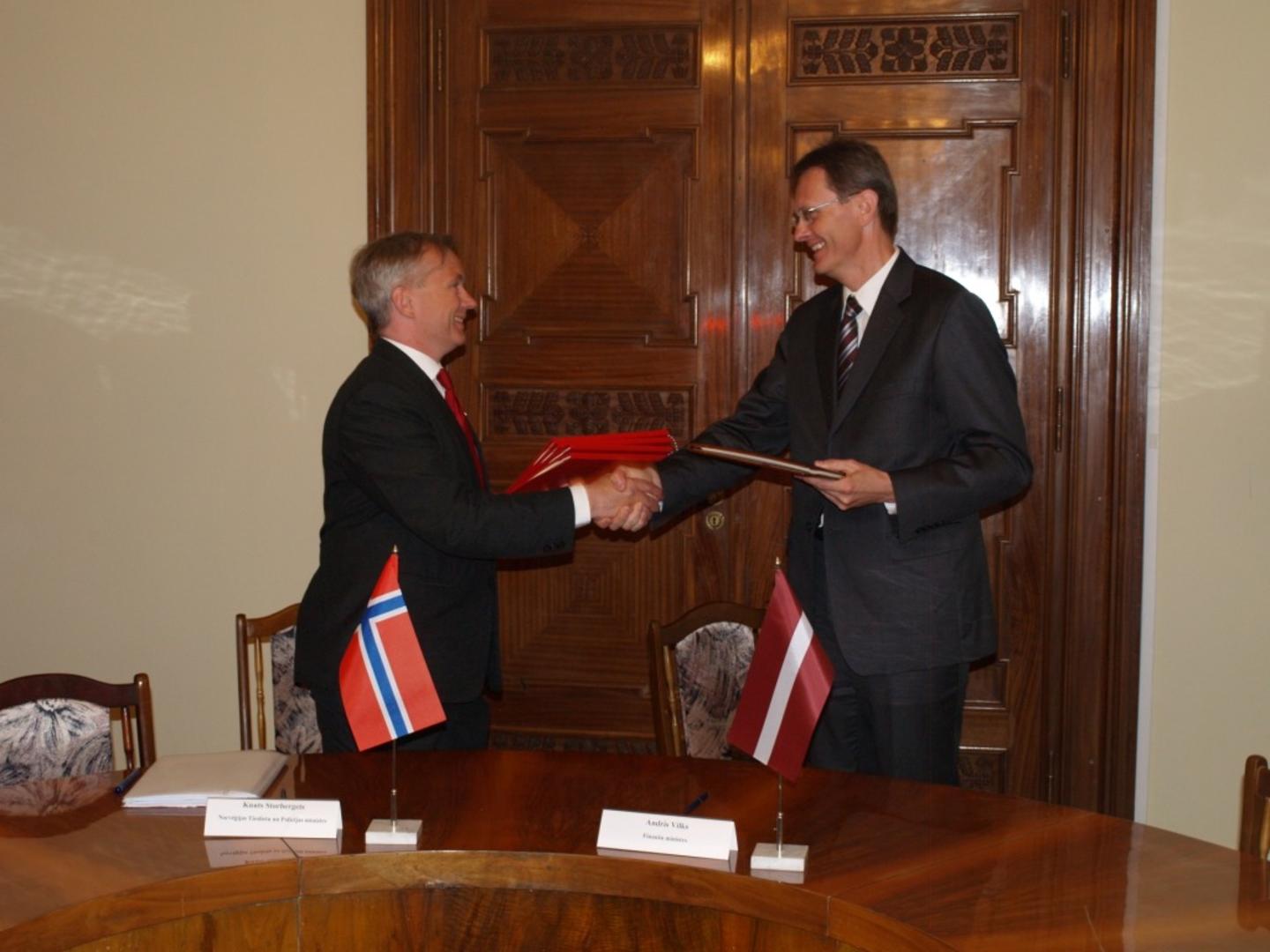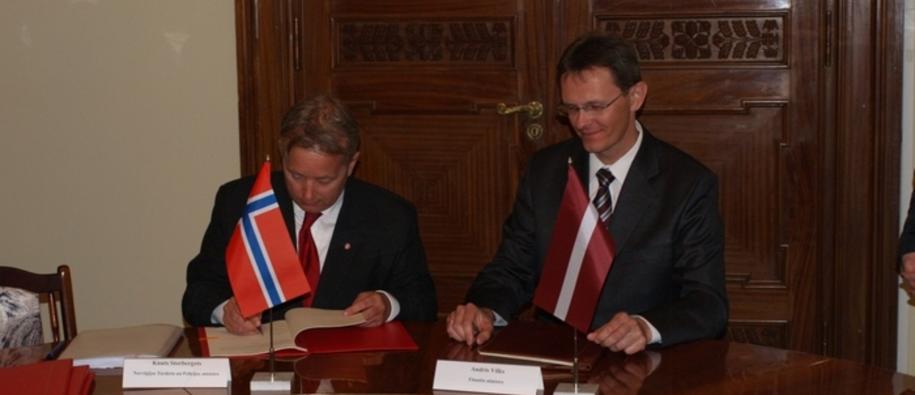During his visit to Latvia, Norwegian Minister of Justice, Knut Storberget, signed the Memoranda of Understanding (MoUs), with the Latvian Minister of Finance Andris Vilks. The MoUs outline the priorities for the €73 million investment in the period up to 2014.
“We are pleased to sign these agreements which will stimulate new contacts between Latvia and Norway in many areas of mutual interest, such as tackling climate change, promoting eco-innovation and improving the justice sector,” said Foreign Minister Jonas Gahr Støre.
Environment, green innovation and climate change
Environmental protection and adaptation to climate change is the largest priority for Latvia under the agreements. Almost one-third (€21.7 million) is earmarked for programmes promoting energy efficiency, green industry innovation and improvement of environmental monitoring and data systems. Over half of this support will target new business opportunities in the green economy, aiming to establish an incubator for eco-industry innovation to serve as a bridging facility between green entrepreneurs and the market place.
Strengthening cooperation on justice
The Norway Grants will provide €13 million to the area of correctional services, focusing on upgrading infrastructure, improving standards and staff training. In Latvia, Minister Storberget visited the Cesu Correctional Institution for Juveniles which benefited from €1.9 million in total under the previous round of the Norway Grants for a large-scale renovation.
Backing for heritage restoration
Protecting cultural heritage is also important in this funding period. €10 million will be spent on projects to safeguard historic assets, restore historical buildings and protect ‘art nouveau’ and wooden architecture for present and future generations.
Civil society and social partners
There will be substantial support for the civil society sector, and also new funding to promote decent work and dialogue between social partners and with public authorities. Iceland, Liechtenstein and Norway will channel €10.4 million through a fund for non-governmental organisations. The grants will also provide funding to foster local and regional capacity building and institutional cooperation, research exchange and scholarships to students.
Bilateral cooperation
As well as contributing to reducing disparities in Europe, the grants are increasingly focused on strengthening cooperation between the donor and beneficiary states. At least eight Norwegian public institutions will be involved in the implementation of programmes in partnership with their Latvian counterparts. Partnerships at project level will also continue to be encouraged. Private enterprises will be particularly welcomed as partners in the Green Innovation programme.
“We have enjoyed long-standing relations with Latvia as a Baltic neighbour for many years and welcome this opportunity to further strengthen partnerships between institutions in the two countries.” said Foreign Minister Jonas Gahr Støre.

